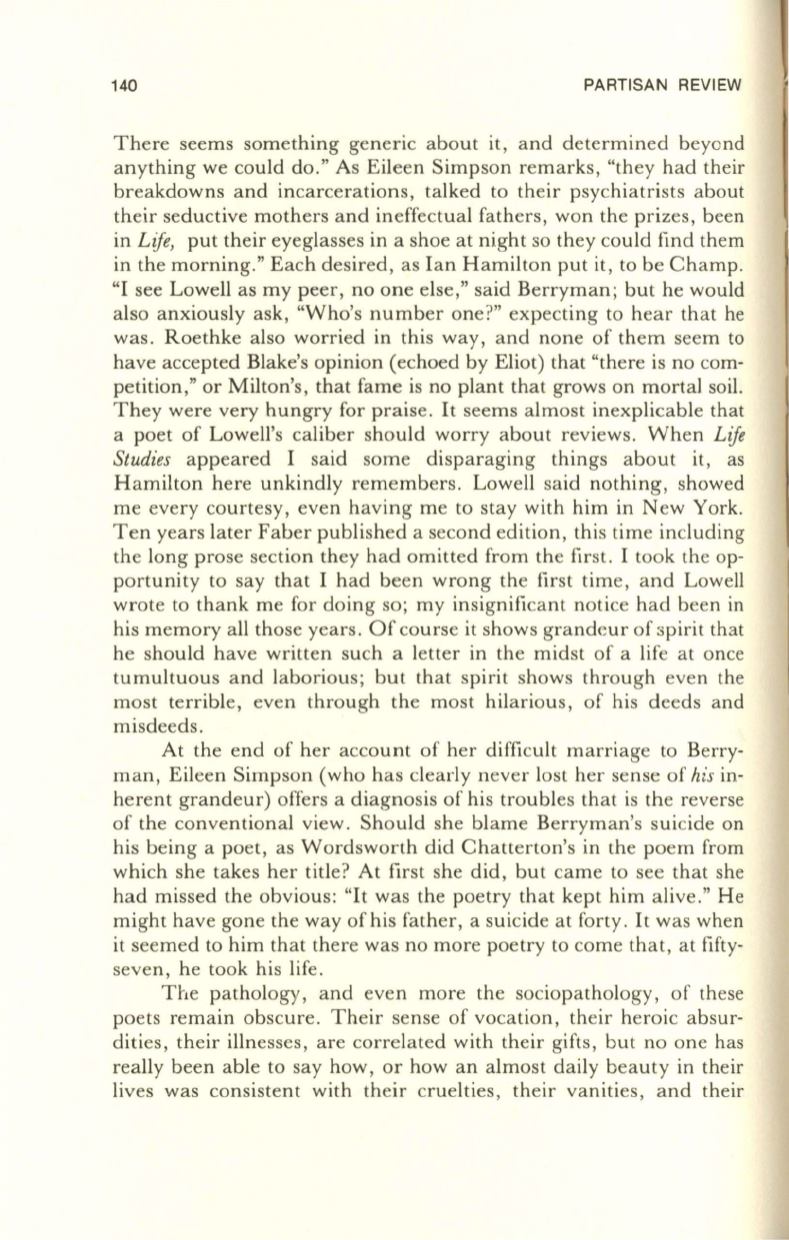
140
PARTISAN REVIEW
There seems something generic about it, and determined beyond
anything we could do." As Eileen Simpson remarks, "they had their
breakdowns and incarcerations, talked to their psychiatrists about
their seductive mothers and ineffectual fathers, won the prizes, been
in
Life,
put their eyeglasses in a shoe at night so they could find them
in the morning." Each desired, as Ian Hamilton put it, to be Champ.
"I see Lowell as my peer, no one else," said Berryman; but he would
also anxiously ask, "Who's number one?" expecting to hear that he
was. Roethke also worried in this way, and none of them seem to
have accepted Blake's opinion (echoed by Eliot) that "there is no com–
petition," or Milton's, that fame is no plant that grows on mortal soil.
They were very hungry for praise.
It
seems almost inexplicable that
a poet of Lowell's caliber should worry about reviews. When
Life
Studies
appeared 1 said some disparaging things about it, as
Hamilton here unkindly remembers. Lowell said nothing, showed
me every courtesy, even having me to stay with him in New York.
Ten years later Faber published a second edition, this time including
the long prose section they had omitted from the first. I took the op–
portunity to say that I had been wrong the first time, and Lowell
wrote to thank me for doing so; my insignificant notice had been in
his memory all those years. Of course it shows grandeur of spirit that
he should have written such a letter in the midst of a life at once
tumultuous and laborious; but that spirit shows through even the
most terrible, even through the most hilarious, of his deeds and
misdeeds.
At the end of her account of her difficult marriage to Berry–
man, Eileen Simpson (who has clearly never lost her sense of
his
in–
herent grandeur) offers a diagnosis of his troubles that is the reverse
of the conventional view. Should she blame Berryman's suicide on
his being a poet, as Wordsworth did Chatterton's in the poem from
which she takes her title? At first she did, but came to see that she
had missed the obvious: "It was the poetry that kept him alive." He
might have gone the way of his father, a suicide at forty. It was when
it seemed to him that there was no more poetry to come that, at fifty–
seven, he took his life.
The pathology, and even more the sociopathology, of these
poets remain obscure. Their sense of vocation, their heroic absur–
dities, their illnesses, are correlated with their gifts, but no one has
really been able to say how, or how an almost daily beauty in their
lives was consistent with their cruelties, their vanities, and their


